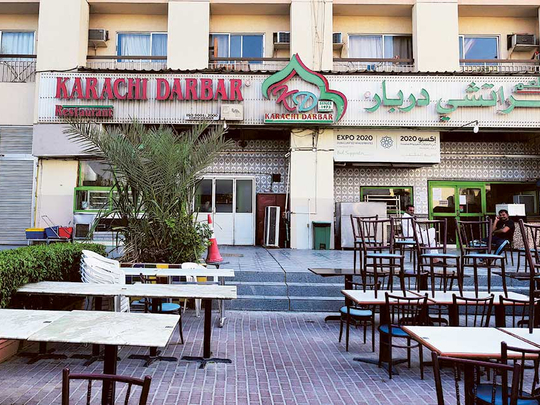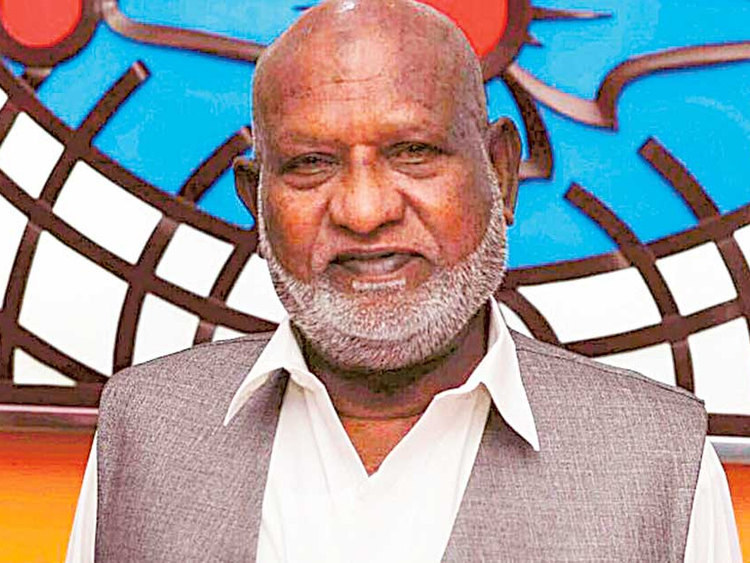
Dubai: Haji Mohammad Farooq, the founder of the popular Pakistani chain of restaurants, Karachi Darbar, died on Friday, his family said on Sunday.
A kidney patient, Farooq complained of leg pain on Friday evening and he was rushed to Rashid Hospital where he was declared dead at 8pm. Farooq was 70 years old and is survived by his wife, a son and five daughters.
His only son, Ayaz, who now runs the group of restaurants, said Farooq had a peaceful death.
“He went to office even a day before his death. He was fine on Friday until he suddenly complained of pain in the leg and we rushed him to Rashid Hospital,” said Ayaz.
“We never realised he would leave us so suddenly. The doctors tried their best and after having tried for one hour to revive him they declared him dead,” said Ayaz.
Ayaz told Gulf News his father was a simple man and a fighter, who fought his way through poverty, to own one of the biggest restaurant chains in the UAE. Originally from Coimbatore in the southern Indian state of Tamil Nadu, Farooq’s parents migrated to Pakistan after Partition.
A cook by profession, Farooq’s arrival in Dubai was an accident when the ship he was working on docked in Dubai in 1967. As a teenager belonging to a poor migrant family in Karachi, Farooq dexterously juggled multiple roles. From a fruit vendor and an autorickshaw driver to a cook at weddings, Farooq did every job that brought meals to the household. But, it was his cooking that earned him a name in his community, helping him land a job as a cook on a cruise ship. The ship sailed to Dubai on its way to Europe.
“My father had an argument with the captain of the cruise ship. He was the head cook on the ship and after the argument he got off and went to his friend, who found him a job at a restaurant in Deira,” said Ayaz.
In 1973, Farooq bought Tipu Sultan restaurant, the eatery where he was employed, from its Indian owner in Deira and never looked back after that.
“My father had saved some money after working hard for five years. He used to cook at different restaurants. He knew how to work on a tandoor and that came in handy during those days. When the owner of Tipu Sultan restaurant was planning to wind up, my father took it over for Dh60,000. He didn’t have all the money. He paid Dh20,000 initially and the rest he paid gradually,” said Ayaz.
What started as a small venture in the bylanes of Deira is now a chain of 28 restaurants, catering to the middle class segment of society with its affordable but popular food. A favourite among taxi drivers and other low-income workers, Karachi Darbar offers good quality food at prices that are within the reach of all segments of society, Ayaz said.
The restaurants now employ 1,300 staff members and is operated from a 20,000 square feet centralised kitchen in Al Ghusais, cooking more than 100,000 meals per day.
However, during the last few months, due to popular demand, Farooq was busy developing a fine dining restaurant catering to a different segment of society.
“We are coming up with Karachi Grills, a fine dining restaurant. It was my father’s dream project and he was planning to open it on December 2. Hopefully, we will go ahead with his plan,” said Ayaz, Farooq’s only son and heir to the restaurant empire.
The restaurant is located in Jumeirah 2 near Mercato Mall.
Known as Haji Sahib, Farooq was more popular in his community as a philanthropist.
According to Ayaz, the secret behind his father’s success was his charitable streak.
“Since day one, my father made sure that one per cent of his daily earnings went to charity and he continued this practice till his last breath. His only advice to us is to continue this practice in whatever business we do,” said Ayaz.
Among his major philanthropic initiatives is a 12-storey specialist kidney hospital that is under construction.
According to Ayaz, the Dh14 million hospital will be managed by Sindh Institute of Urology and Transplantation, with a capacity to undertake 300 dialysis procedures per day.








